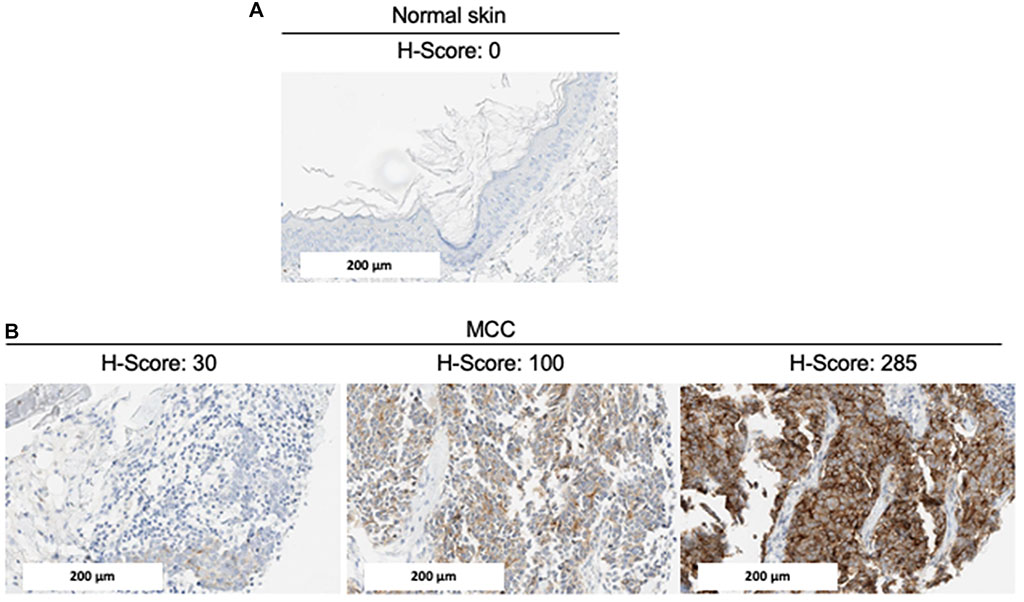Glypican-3 Is Associated With Impaired Outcome in Merkel Cell Carcinoma
Posted on 16 Aug 2022
Merkel cell carcinoma (MCC) is a rare and aggressive neuroendocrine skin cancer mostly occurring in elderly patients, with increased incidence in case of immunosuppression. MCC is related to the Merkel Cell Polyomavirus (MCPyV) in 80% of cases. Immune checkpoint inhibitors provide sustained benefit in about 50% of MCC patients with advanced disease.
Glypican-3 (GPC3) is an oncofetal tumor antigen that is an attractive target for chimeric antigen receptor T cell therapy due to its highly restricted expression on normal tissue and high prevalence in several solid tumors. GPC3 is known to be expressed in MCC but its association with tumor characteristics or prognosis has not been reported.

Medical scientists at the University Hospital of Tours (Tours, France) collaborating with those from SOTIO Biotech Inc (Prague, Czech Republic), investigated MCC GPC3 expression by immunohistochemistry (IHC) and its association with tumor characteristics, MCPyV status and patient outcome.
Tissue microarray (TMA) slides or whole mount slides containing tumor samples from hepatocellular carcinoma (HCC), liposarcoma, lung cancer, and MCC patients were stained by GPC3 IHC assays using either GC33 or previously validated 1G12 antibody clones. FFPE sections at 5 μm were stained using anti-GPC3 mouse monoclonal primary antibody clone GC33 (Ventana Medical Systems, Inc. Tucson, AZ, USA) on BenchMark ULTRA to detect membrane and cytoplasmic expression. MCPyV status was determined in MCC tumors using real time quantitative PCR. MCPyV status was determined in MCC tumors using real time quantitative PCR
The team reported that the GC33 antibody clone was validated for GPC3 IHC staining of tumor specimens in comparison to an established GPC3 IHC antibody. An MCC tissue microarray was stained for GPC3 by IHC using GC33 antibody. Association of GPC3+ IHC with baseline characteristics, MCPyV status (qPCR) and outcome (death from MCC/recurrence) were assessed.
The team reported that 42/62 samples (67.7%) were GPC3+. GPC3 expression was more frequently observed in females and MCPyV-negative tumors. By multivariate analysis, GPC3 expression was associated with increased death from disease (CSS) (hazard ratio [HR] 4.05, 95% CI 1.06–15.43), together with advanced age (HR 4.85, 95% CI 1.39–16.9) and male gender (HR 4.64, 95% CI 1.31–16.41).
The authors concluded that GPC3 was expressed in nearly 70% of MCC tumors and up to 90% of MCPyV-negative cases, and was associated with worse prognosis in terms of risk of death from MCC. High prevalence of surface GPC3 makes it a putative drug target. The study was published on August 3, 2022 in the journal Oncotarget.
Related Links:
University Hospital of Tours
SOTIO Biotech Inc








 (3) (1).png)




